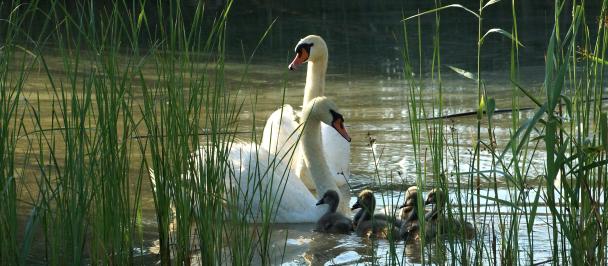Connecting nature and people: Kazakhstan's path to biodiversity resilience through SPACES initiative
September 25, 2024

All living beings, including humans, are connected through intricate networks known as ecosystems. Biodiversity acts as the foundation of these systems, with each gene, species, and population playing a crucial role in shaping the vibrant environment of Kazakhstan ensuring the integrity and resilience of ecosystems.
There are many challenges from habitat loss, fragmentation due to agriculture, urban expansion, and infrastructure faced by the biodiversity of Kazakhstan. Overgrazing, invasive species, and illegal hunting degrade ecosystems, while roads and fences disrupt migration routes, leading to increased human-wildlife conflicts (the Saiga antelope can serve as an example here). These issues, compounded by climate change, make harmonious coexistence between people and nature increasingly difficult.
To tackle these issues, Kazakhstan has committed to creating a National Biodiversity Strategy and Action Plan that addresses local concerns while aligning with global goals set by the Global Biodiversity Framework. Today, we are launching SPACES, a global initiative designed to help countries meet the targets of the Framework which aim to catalyze urgent and transformative action to halt biodiversity loss.
SPACES aims to enhance Kazakhstan's protected area system by expanding existing protected areas and establishing Other Effective Area-Based Conservation Measures (OECMs), which include hunting reserves and ecological corridors. This project is a collaboration led by the UN Environment Programme World Conservation Monitoring Centre (UNEP-WCMC), the Association for the Conservation of Biodiversity of Kazakhstan, the Ministry of Ecology and Natural Resources, and other partners, all working together to support Kazakhstan in achieving its conservation goals.
Through SPACES, we will improve ecological management by providing strategic guidance and recommendations for creating new protected areas, supported by feasibility studies and economic assessments. We will identify key areas to enhance ecological connectivity and develop new corridors and conservation measures. Our approach will also involve shaping legal and policy frameworks to promote inclusive conservation planning that includes input from local communities.
Policymakers and specialists will gain the skills needed to analyze biodiversity data, develop sustainable financial strategies, and implement effective conservation measures. Improved access to environmental information, such as the updated maps in the national database on the state of environment Tabigat, will enhance decision-making for protecting species and minimizing human-wildlife conflicts. These efforts will strengthen Kazakhstan's contributions to the Global Biodiversity Framework and its National Biodiversity Strategy and Action Plan, fostering a more resilient and inclusive approach to conservation.

 Locations
Locations


